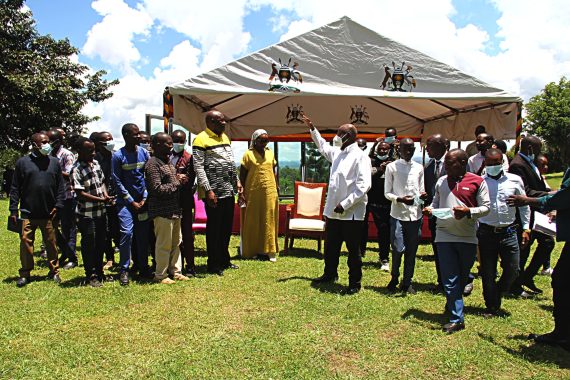The Uganda AIDS Commission (UAC) has revealed that AIDS-related deaths have declined, dropping from 21,000 in the 2020/21 period to 19,724 in 2023/24.
According to the latest Annual Joint AIDS Review (JAR) Report. While the numbers signal hope, experts warn there’s still trouble brewing.
Dr. Vincent Bagambe, UAC’s Director of Planning and Strategic Information, expressed concern over the troubling trend of late HIV diagnoses. An alarming 24% of new cases are detected at advanced stages of the disease, a delay that complicates treatment and threatens survival rates.
“We need more early testing and awareness if we’re going to save lives,” Bagambe emphasized.
In a proactive push to educate the youth, Uganda has integrated HIV education into the new school curriculum. Spearheaded by Dr. Bagambe and the UAC, this initiative aims to reduce stigma and spread prevention knowledge among the young.
“We’re empowering the next generation with information that could save lives,” Dr. Bagambe noted.
Dr. Bagambe notes that over 95% of people diagnosed with HIV are now linked to care and put on life-saving antiretroviral therapy (ART). This has resulted in a viral load suppression rate of 92% among those on treatment, a huge milestone in the fight to keep HIV under control.
However, reaching certain groups, especially adolescents, remains a challenge. Efforts to increase ART uptake and patient retention are ongoing, with the UAC pledging to tackle these gaps.
The UAC has also ramped up HIV testing accuracy with the establishment of the Uganda National Accreditation Service (UGANAS) and a robust laboratory quality management system.
These measures have improved the reliability of HIV testing across the country, giving patients confidence in their diagnoses.
Financially, the fight against HIV/AIDS saw $690.2 million mobilized in 2023/24, with the Ugandan government contributing 13%. These funds have supported everything from community outreach to facility upgrades, ensuring a sustained battle against the epidemic.

















